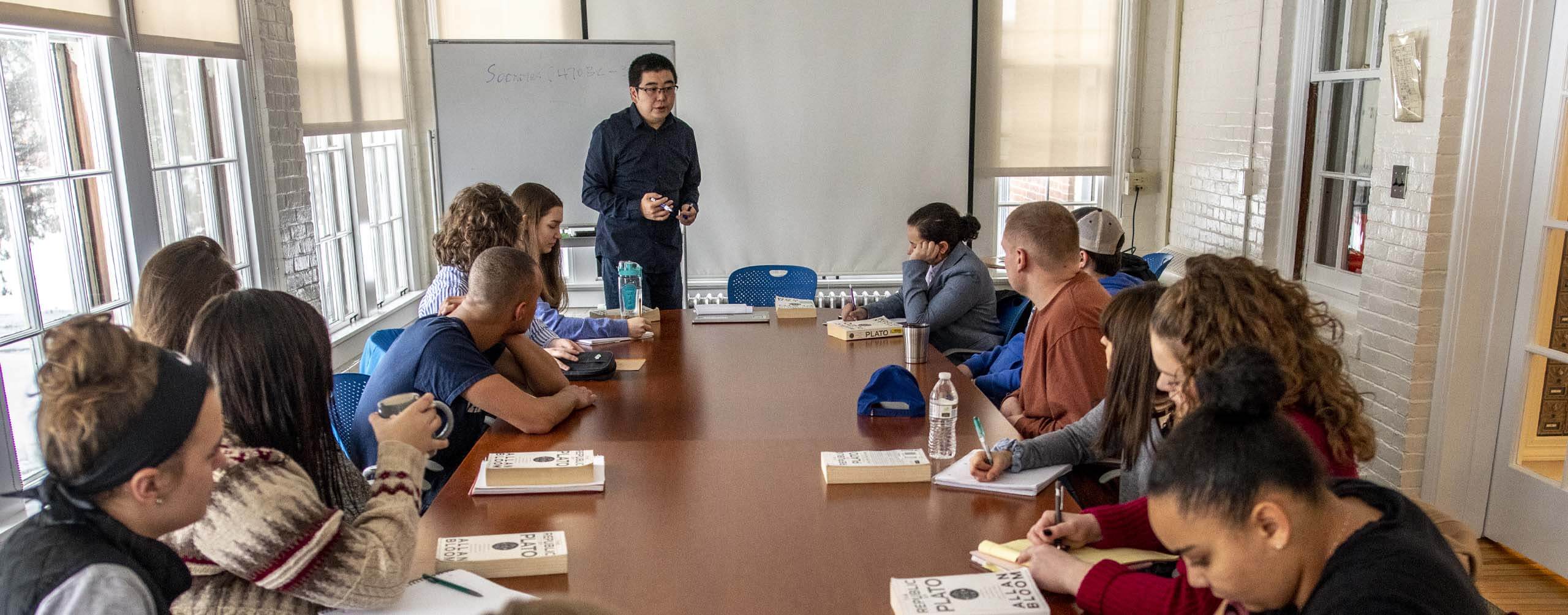
Philosophy
College of Liberal Arts and Sciences
Philosophy examines human nature, culture and the world. What is truth? What is real? What is beauty? What is the good life? What does it mean to know? What values should inform our relationships with other people, communities, and the natural environment?
The University of Maine “advances learning and discovery through excellence and innovation while addressing the complex challenges of the 21st century through research-based knowledge.” Philosophy is at the heart of this mission.
Our major is very flexible, so students can explore areas of philosophy that particularly interest them while they learn the fundamentals of the philosophical tradition. Logic and the history of philosophy are key to understanding how and why to do philosophy. The curriculum is especially strong in ethics and political philosophy. Our courses tend to be smaller, and all encourage discussion and active learning.
Philosophy not only broadens students’ horizons, but helps them better understand themselves and their own values and goals. Philosophy is especially effective in developing students’ analytic and writing skills through courses that cover the 2,000-year history of philosophy — from Plato and Aristotle to the latest 21st-century developments.
Department members are committed to expanding the diversity of philosophical voices in our courses, events and research.
Philosophy doesn’t train students for a specific career. Instead, it develops the skills in writing, thinking, questioning, and problem-solving necessary for the twenty- first century workplace, where frequent job and career changes are the new normal. So the better question is “Of the many career options open to me as a philosophy major, which one is best for me?” Each year, our students pursue careers in law, business, government, health and education.
Philosophy graduates can be found in all walks of life, becoming teachers, doctors, media specialists, actors, novelists, filmmakers, social workers, professional athletes, business executives, nurse practitioners, information technologists, farmers, entrepreneurs, politicians and political analysts.
In addition to its major, the Department of Philosophy offers minors in philosophy, ethics and political philosophy, and environmental ethics. These minors combine well with many majors offered at UMaine. The department welcomes double majors and minors from other fields and offers many interdisciplinary and cross-listed courses. For students who like thinking big, and/or care about ethical and political issues related to their main disciplines, philosophy is a fantastic addition.
Derek A. Michaud
Senior Lecturer and Chair of Philosophy, Religious, and Judaic Studies
The Maples, Room 109
207.581.3890 | derek.a.michaud@maine.edu
Philosophy
College of Liberal Arts and Sciences
The Maples
207.581.3866
